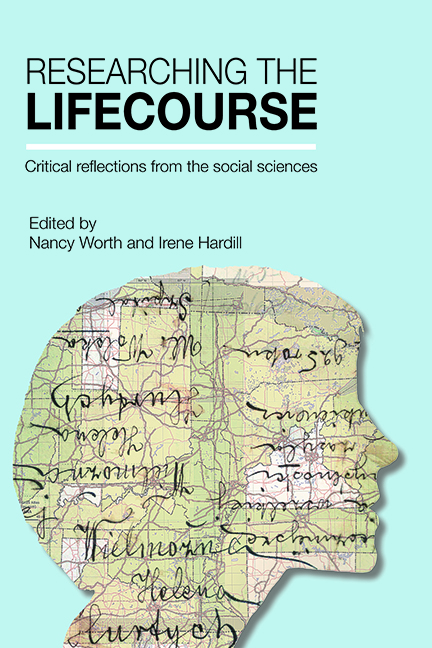three - Time in mixed methods longitudinal research: working across written narratives and large scale panel survey data to investigate attitudes to volunteering
Published online by Cambridge University Press: 08 March 2022
Summary
Introduction
The aim of this chapter is to explore the methodological and analytical challenges thrown up by an ongoing study that has been reusing and combining longitudinal qualitative narrative and quantitative survey data to research individual attitudes to voluntarism between 1981 and 2012. This period represents a time of economic and social policy change encompassing recession and cuts to public services; followed by relative prosperity and increase in investment in public services; and then the most recent recession and accompanying austerity measures (Timmins, 2001; Glennerster, 2007; Alcock 2011; Defty, 2011; Driver, 2008).
Our study is part of a general move to promote secondary data analysis in the UK, led by the major social science funding body, the Economic and Social Research Council (ESRC). Secondary analysis involves the reuse of the rich infrastructure of pre-existing social survey, interview, documents, administrative and other data that have been generated by primary researchers or various agencies, and which then are made available to secondary researchers through archiving services. Our particular project reused both qualitative and quantitative longitudinal datasets following individuals participating in these panels through time, to enable us to identify changes and continuities in volunteering attitudes and behaviours as these people moved through the portion of their lifecourse under study. However, the reuse of qualitative and quantitative data, and mixing methods are not straightforward processes, and are subject to considerable debate about how these may be achieved, and their relative strengths and drawbacks, as we discuss in this chapter. Notably there is the knotty issue of the basis on which these methods may be ‘mixed’ together. The endeavour becomes even more complicated when the research topic is concerned with time and the various data sets are longitudinal. In turn, this raises issues about the nature of the conceptions of time that are invoked within the datasets. In considering these complex, interlinked issues, we aim to highlight and contribute to understandings of time in lifecourse research.
The chapter is divided into three sections. The first considers our reuse of selected narrative and survey datasets, their relationship with time, and how we have accounted for this when engaging with them. The second examines how we have analysed the longitudinal data produced by writers and gathered from survey respondents and how we have mixed these analyses.
- Type
- Chapter
- Information
- Researching the LifecourseCritical Reflections from the Social Sciences, pp. 43 - 62Publisher: Bristol University PressPrint publication year: 2015
- 1
- Cited by

